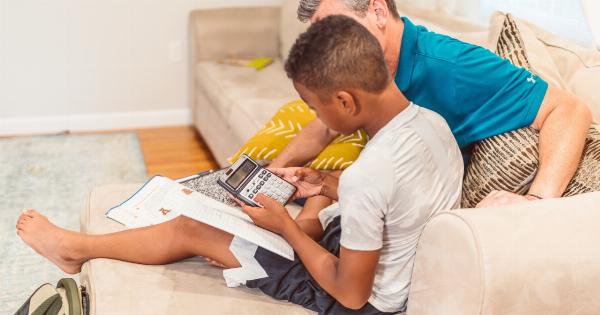As a parent, it’s always a challenge to determine the best bedtime for your child. Every child is different, and what works for one might not work for another.
However, there are some guidelines that can help you calculate the best time for your child’s bedtime.
1. Determine How Much Sleep Your Child Needs
The National Sleep Foundation recommends the following amount of sleep for different age groups:.
- Newborns (0 – 3 months): 14 – 17 hours a day
- Infants (4 – 11 months): 12 – 15 hours a day
- Toddlers (1 – 2 years): 11 – 14 hours a day
- Preschoolers (3 – 5 years): 10 – 13 hours a day
- School-age children (6 – 13 years): 9 – 11 hours a day
- Teens (14 – 17 years): 8 – 10 hours a day
Knowing how much sleep your child needs will give you a general idea of how much sleep they should be getting each night. Of course, every child is different, and some may need more or less sleep than the recommended amount.
2. Consider Your Child’s Natural Sleep Rhythm
Some children are early birds, while others are night owls. If your child is naturally more alert and energetic in the morning, you may want to set an earlier bedtime.
If your child is more alert and energetic in the evening, it may be better to set a later bedtime.
You can also look at your child’s nap schedule to determine their natural sleep rhythm. If your child is still taking regular naps, the best bedtime may be a little later to account for the extra daytime sleep.
3. Take into Account Daily Activities
Another factor to consider when calculating your child’s bedtime is their daily activities. If they have a lot of physical activity during the day, they may need more sleep at night. If their day is more sedentary, they may not need as much sleep.
You should also consider any after-school activities or homework your child has. If they have a lot of homework to do, they may need to go to bed earlier to get enough sleep.
4. Create a Consistent Bedtime Routine
Once you’ve determined the best bedtime for your child, it’s important to establish a consistent bedtime routine. This can include things like a bath, reading a bedtime story, or listening to calming music.
Having a consistent bedtime routine can help your child wind down and prepare for sleep. It can also signal to their body that it’s time to sleep, making it easier for them to fall asleep and stay asleep.
5. Be Willing to Adjust Your Child’s Bedtime
No matter how much planning you do, there may be times when your child’s bedtime needs to be adjusted. For example, if they’re going through a growth spurt, they may need extra sleep. If they’re sick, they may need more rest than usual.
Be willing to adjust your child’s bedtime as needed to ensure they’re getting the sleep they need to stay healthy and happy.
Conclusion
Determining the best bedtime for your child is a process that requires consideration of their natural sleep rhythm, activities, and sleep needs.
Once you’ve determined the best bedtime, creating a consistent bedtime routine can help your child prepare for sleep and get the rest they need to thrive.



























